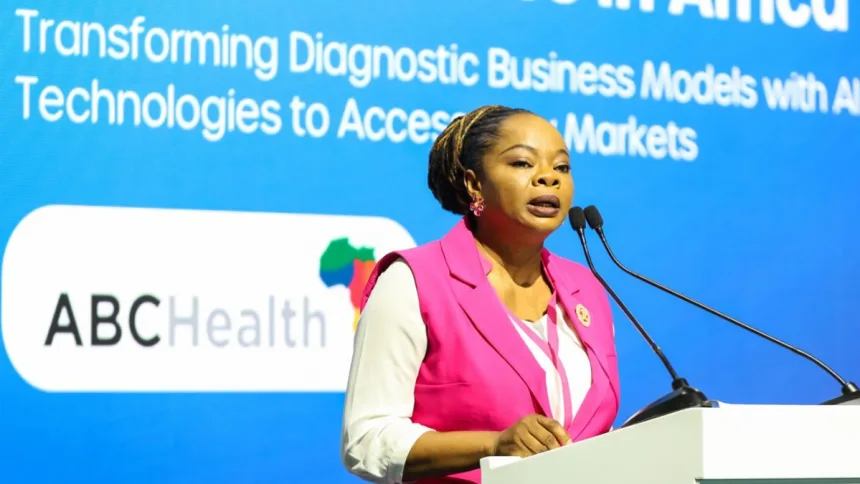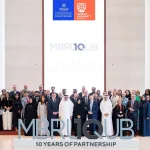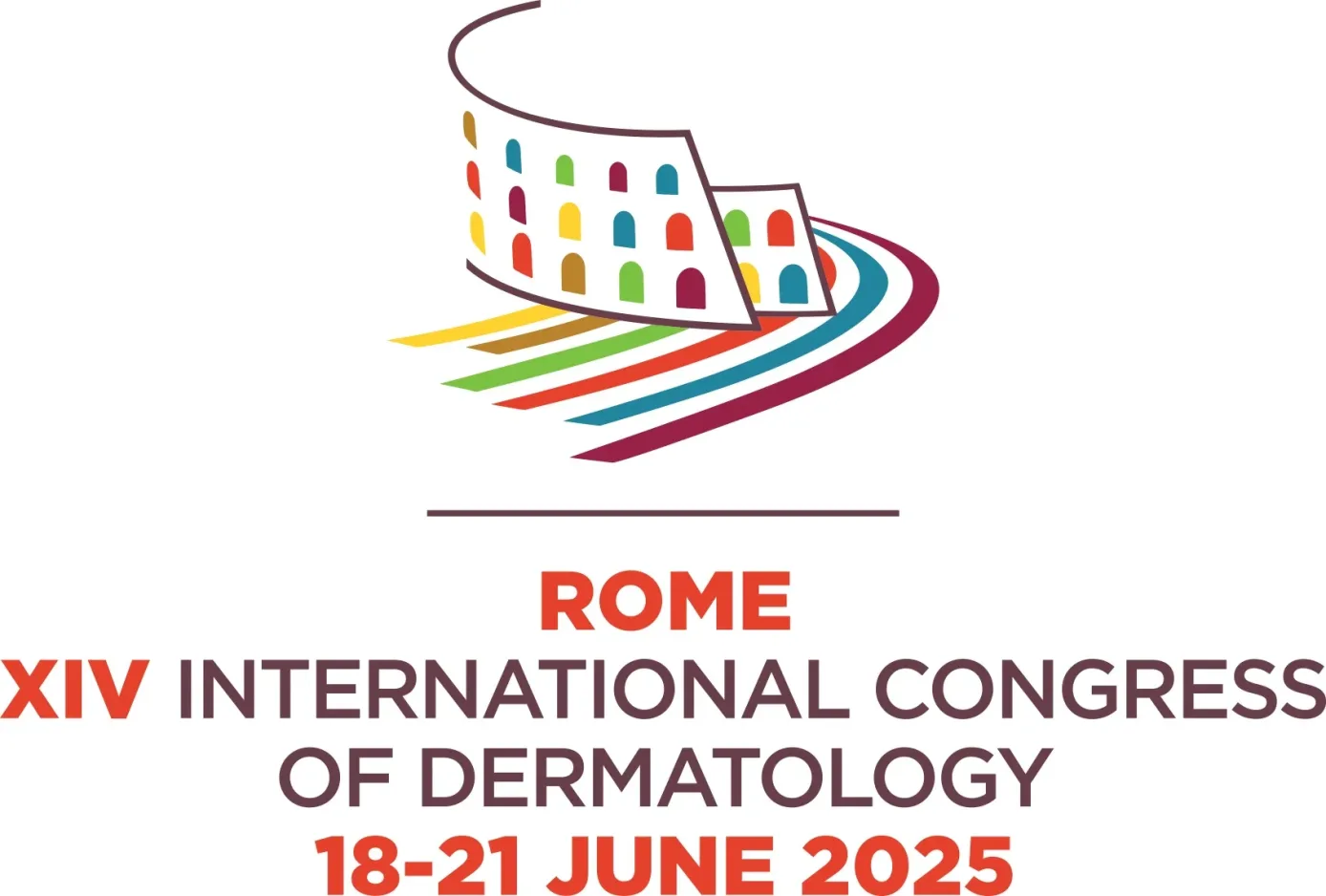Dubai, UAE- February 2025- Amid rapid transformation in Africa’s healthcare sector, Medlab Middle East hosted a dedicated session on ‘Doing Business in Africa – Transforming Diagnostic Business Models with AI and other Technologies to Access New Markets’. Led by the African Business Coalition for Health (ABCHealth), the event brought together industry leaders, policymakers and healthcare innovators to explore AI-driven solutions and the technological advancements shaping Africa’s diagnostics landscape.
With growing healthcare demands and underserved markets, Africa presents significant opportunities for businesses leveraging AI, automation and data-driven solutions. The ABCHealth session highlighted the innovative approaches, key market-entry strategies, and technology-driven collaborations that enable businesses to tap into Africa’s dynamic and evolving healthcare ecosystem, fostering sustainable growth and improved health outcomes.
During the welcome address, Dr Mories Atoki, CEO, African Business Coalition for Health (ABCHealth), Nigeria said: “Whether you represent a government body, a private enterprise, or an academic institution, the contributions today matter. Together, we have the opportunity to overcome barriers and harness the power of artificial intelligence and other technologies to transform the diagnostics business models that will define the future of healthcare in the African continent. Today is about maximising the opportunities to exchange ideas, network, connect and inspire one another.”
Also Read : Medlab Middle East debuts Lab Automation Conference to explore AI and Robotics in diagnostics
The opening keynote session by Professor Hatem Mostafa ElGabaly, Former Minister of Health, Egypt, highlighted the importance of African countries and the opportunities to support and promote businesses from the country.
He said, “The current state of health diagnostics in Africa is prohibited by the limited access to advanced diagnostic tools. In some regions, there is only one radiologist per 500,000 people. In addition, there is a high disease burden with an inadequate healthcare infrastructure. Africa accounts for 24% of the global disease burden but only 3% of the global health workforce. This underscores the importance of investment, which has the potential to improve health outcomes and economic growth, as well as utilising technology to leapfrog traditional healthcare models.”
In addition to the Africa-focused session, Medlab Middle East has hosted two high-level breakfast forums this week, which brought together global and regional laboratory leaders to discuss the key issues shaping the future of diagnostics and healthcare.
The Global Lab Leaders Breakfast Forum gathered Medlab portfolio global advisers, scientific chairs, international partners and stakeholders to tackle the global harmonisation of laboratory practices. Discussions at the new forum also explored the critical role of labs in managing global health crises, fostering international collaboration, and shaping the future of laboratory medicine.





















